2012美国大选 奥巴马必胜的五大理由
爱思英语编者按:据新加坡《联合早报》4月3日报道,美国共和党总统初选的形势渐渐明朗,美国一项最新民调显示,在选情最激烈的12州中,奥巴马领先罗姆尼9个百分点。同时,越来越多的共和党领袖认定,在今年11月6日的选举中,与现任总统奥巴马对决的人非罗姆尼莫属。大伙儿或许都在预测最终鹿死谁手。这里列举了奥巴马大胜的五大原因。看完之后,大家可以哈哈一笑。
5 Reasons Obama Will Win in November
It's almost May. Six months to go until the only presidential poll that counts.
Worries abound in the Obama camp: Large Democratic donors have dried up, the fragile economic recovery is looking weaker, independents are, well, being independent, and the Republicans have finally found their nominee and maybe their voice too.
Worrying about getting reelected is part of a president's job description, but this president really shouldn't be all that concerned. The election is bound to be closer than in 2008, but when it's over, the presidential gods will likely have smiled kindly on Barack Obama. Here are the top five reasons why.
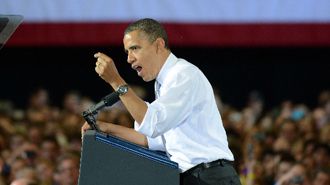
1. Americans are reelecting imperfect and flawed presidents.
I know it's going to come as a shocker, but Obama hasn't been a great president in his first term and is unlikely to be one in his second. His two claims to fame -- saving the economy from another Great Depression and passing his signature health-care legislation -- won't get him there. The first will largely be taken for granted, and the second is still a very uncertain and untested proposition. The president's foreign policy has been very competent, but aside from the killing of Osama bin Laden, it has had no spectacular successes.
But what's so great about being great anyway? Greatness is certainly not a requirement for reelection.
The last two U.S. presidents -- Bill Clinton and George W. Bush -- were reelected comfortably, and neither could hardly be considered a candidate for the presidential hall of fame. Both were flawed and imperfect men: Obama's predecessor was below average; Clinton clearly above average. That's about where Obama falls too. Consider this: Since Franklin D. Roosevelt, the United States has had four presidents who served out two terms: Eisenhower, Reagan, Clinton, and Bush 43. Even with a push from partisans and revisionist historians, none really belongs in the very top tier.
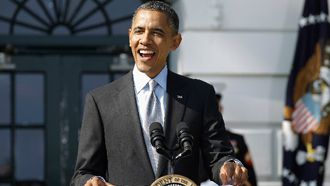
2. Obama has history on his side.
Since 1980, only one U.S. president has failed to gain a second term. That was George H.W. Bush, who defied the odds by succeeding a two-term president of the same party. Since FDR, this has happened only once. It's a tough hill to climb. Americans generally tire of too much single-party dominance. Indeed, that's why Hillary Clinton should take a very hard look at her chances in 2016 -- should Obama be reelected.
A set of three presidents -- Clinton, Bush 43, and perhaps Obama -- is hardly a valid statistical sample, but it does tell you something about the power of the incumbent. It's hard to defeat a sitting president. Although a bad economy offsets some of the incumbent's advantage, Americans tend to get comfortable with their presidents. Presidents are also able to act presidential right up to Election Day. The presidency has a great many bells and whistles, including the White House, which Aaron Sorkin's West Wing president once described as the world's greatest home-court advantage.
There's also the issue of continuity. These days, U.S. state and congressional politics have gotten pretty combustible and polarized. The media circus at the national level only makes things seem more out of control.
As Americans watch their politics implode, they seem to be seeking a measure of stability in the one institution that they all have responsibility for shaping -- the presidency. In these turbulent times, Americans tend to stay with their guys, flawed as those guys may be. Should Obama be reelected, it will only be the second time in U.S. history that America has had three two-term presidents in a row. The last time? Jefferson, Madison, and Monroe. "Throw the bums out" doesn't seem to be as compelling a line these days.
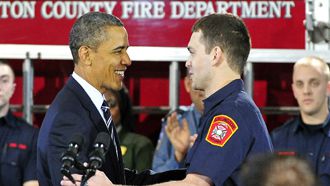
3. The guy's a mensch (kind of).
If location, location, location is the key to success in the real estate business, then being liked -- cubed -- plays a big part in a president's success too. When Americans choose a president, they do so partly on the basis that they're inviting him (or her, someday) to be part of their lives for four and possibly eight years. This means being able to like the person and be comfortable with him.
Forget whether the candidate is brilliant -- the most overrated quality in the presidency. Can he be trusted? Is he trying to do the right thing? Is he arrogant and out of touch, or likable and down to earth? Can one imagine spending an hour with the president and not having to look down at one's shoes for the entire conversation? Think about whom you'd want to spend time with: Bill Clinton or Bob Dole; Ronald Reagan or Jimmy Carter. If the president has a normal family life, that helps too, particularly if he's got a cool wife, cute kids, and a dog.
Obama can appear detached, even cold, at times. More often, though, he's accessible and sincere. You'll never convince the birthers, racists, and Obama-haters that he's anything other than an alien president. But back on planet Earth, most Americans, according to recent polling, see him as more likable, more in touch with the needs of average people, than Republican candidate Mitt Romney.
He's good on his feet and appears pretty comfortable in his own skin. That's the elusive quality of emotional intelligence. Are you in balance? Can you relate to others, keep your demons and insecurities under control, and stay out of trouble? Obama gets high marks in this important category.
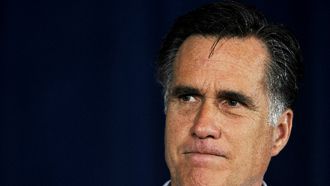
4. The Republicans are weak and divided.
You can't beat something with nothing. That old saw in politics wins out most every time. The Republican Party has never gotten over its love affair with Reagan. Look at the parade of Republican hopefuls who rose and fell during primary season. Had Reagan been around, he'd have been frustrated with the divisions in Republican ranks. And the Gipper might have described the primaries as an audition in which the last guy standing got the part only because the producers were exhausted and needed to get the play into rehearsals before the opening.
I know the main counterpoint: Republicans will come together because they need to defeat Obama. But the gaps between the Republican base and the centrists are huge; the obsession with social issues risks alienating independents; there are real doubts that Romney is conservative enough; and there's not much enthusiasm for his stiff style on the campaign trail. All this is creating real trouble for a party that seems to have lost its way. Add to that Republican difficulties in making inroads with women and Hispanics, and you might conclude that the election is Obama's to lose.
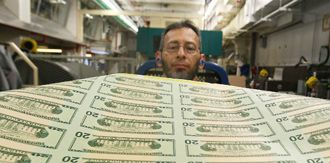
5. The economy: bad, but Obama wins on points.
Clearly, much will depend on how voters perceive their economic reality closer to the election. Obama really isn't running against Romney -- he's running against the economy. By the fall, it's likely that about the best he'll have to show is a weak recovery. Indeed, the New York Times reported last week that when it comes to the economy, the all-important Ohio voters see Romney vs. Obama as an unpalatable choice between liver and Brussels sprouts.
Still, when Americans vote for a president, they ask themselves two questions: To what degree is the guy in the White House responsible for my misery? And if I vote for the other guy, can he really make it better? Barring another economic meltdown, I'm betting that enough Americans will conclude that things are getting better, albeit slowly; that Obama is doing the best job he can under tough circumstances; that the president is much more attuned to those who are suffering; and that the Republicans have neither better answers on the economy nor a compelling-enough candidate worth giving the benefit of the doubt.
So don't worry too much, Mr. President. You may not be getting into the presidential hall of fame, but it looks like you're going to get another shot to try.